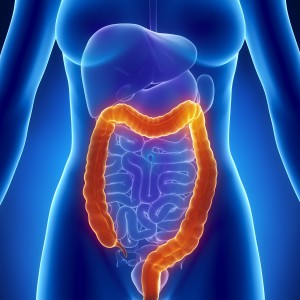 Overweight children and youngsters may have a higher risk of developing colorectal cancer later in life, according to a study recently published in Cancer Epidemiology Biomarkers and Prevention. The conclusions mainly involved women, whose health is disproportionately affected by being overweight as children.
Overweight children and youngsters may have a higher risk of developing colorectal cancer later in life, according to a study recently published in Cancer Epidemiology Biomarkers and Prevention. The conclusions mainly involved women, whose health is disproportionately affected by being overweight as children.
The study entitled “Early Life Body Fatness and Risk of Colorectal Cancer in U.S. Women and Men—Results from Two Large Cohort Studies,” which was supported by the American Institute for Cancer Research, included data from 75,238 women from the Nurses’ Health Study, as well as 34,533 men from the Health Professionals Follow-up study.
“Our study supports the growing evidence that early-life body size can influence risk of colorectal cancer many decades later,” explained the senior author of the study, Esther K. Wei, ScD, from the California Pacific Medical Center in a press release “Although we don’t need any additional evidence to encourage obesity prevention and increased physical activity in children, this study adds additional imperative to prioritizing children’s health.”
The researchers asked volunteers to select their shape of body at the ages 5, 10, 20, 30, 40 and at their current age, while answering a series of questions on weight, activity, diet and lifestyle habits. The results showed that a total of 2,100 patients suffered from colorectal cancer and overweight female children had a 28% increased risk of developing colorectal cancer, while overweight female teenagers were 27% more likely to suffer from the disease.
The same was not true for boys and male teenagers, which may be explained by faulty recall, chance, or unknown biology, according to the authors. “We really don’t know why we only observed the associated in women and not in men, but since this is still a relatively new area of research, it’s too early to conclude that this association does not exist in men,” explained Dr. Wei.
The authors also noted that excess body fat is always a risk factor for the development of cancer, but further research would help understand the molecular subtypes of colorectal cancer, as well as its potential mechanisms. The team believes this is a connection worth studying as a third of children and teenagers in the U.S. are either overweight or obese.
“We already know that overweight kids often become overweight adults. And overweight adults are at risk for many cancers,” added the associate director for nutrition programs of AICR, Alice G. Bender, MS, RDN. “This study emphasizes how important it is for parents and caregivers to help kids choose healthy habits — so it becomes natural for them. Letting your kids see you enjoy colorful fruits and vegetables, giving them healthy options, and taking fun 5-minute activity breaks are just a few of the ways you can set your kids on a path to be healthy throughout life.”


